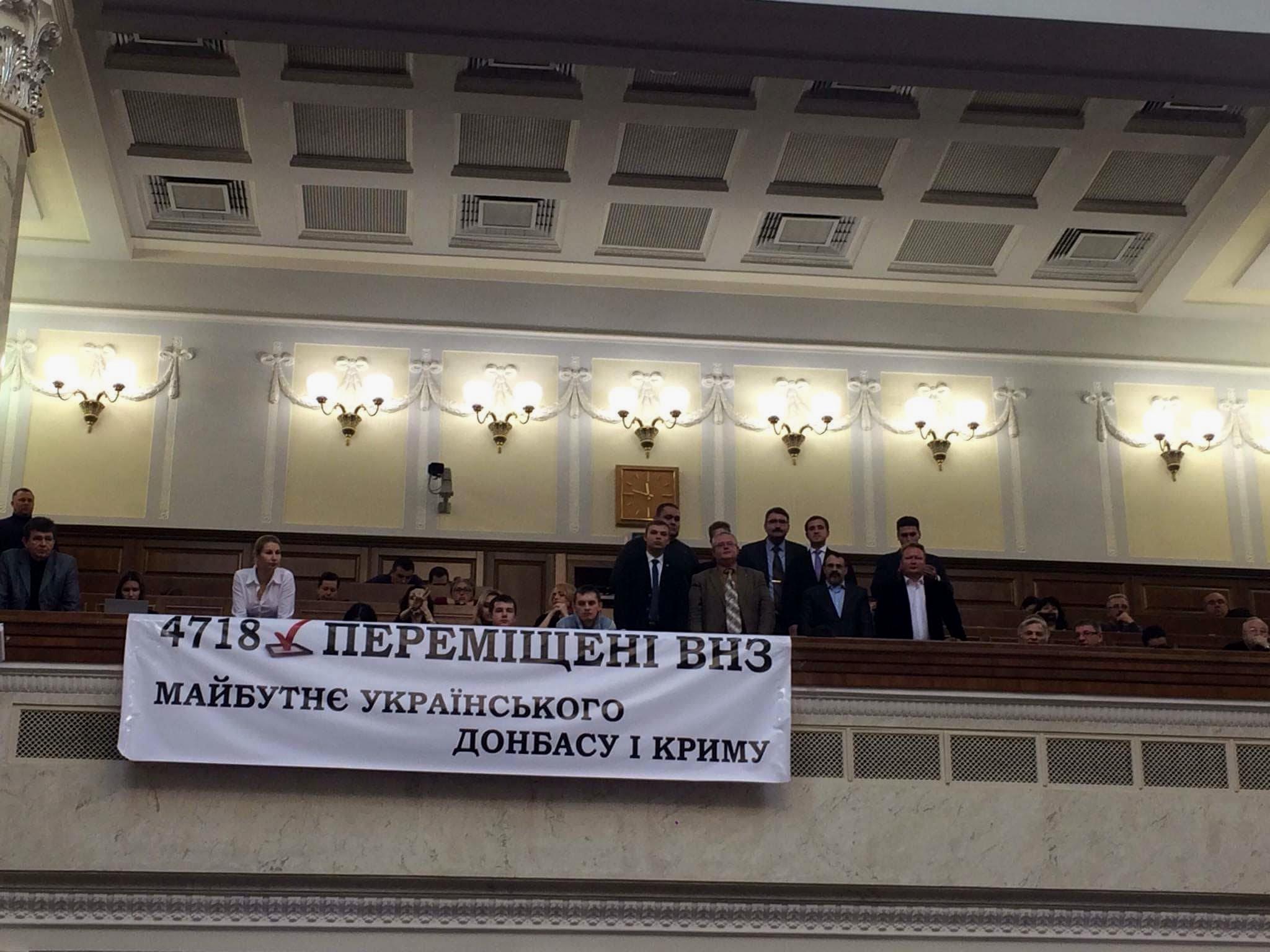Since Russia annexed Сrimea and started the war in Donbas in 2014, 18 Ukrainian state universities have been evacuated from the occupied areas: nine from Donetsk Oblast, eight from Luhansk Oblast, and one from the Crimean Peninsula.
Having lost their campuses, equipment, and documentation, the displaced universities had to start everything from scratch. According to National Institute for Strategic Studies, by 2015 the educational infrastructure of Donbas had suffered losses amounting to $4.9 bn.
Despite all this, most of the evacuated сolleges are well settled and show growth in new places - more and more young people wish to study there. Euromaidan Press contacted displaced universities' representatives to figure out what has changed in their lives.
The new face of Vasyl Stus National University of Donetsk
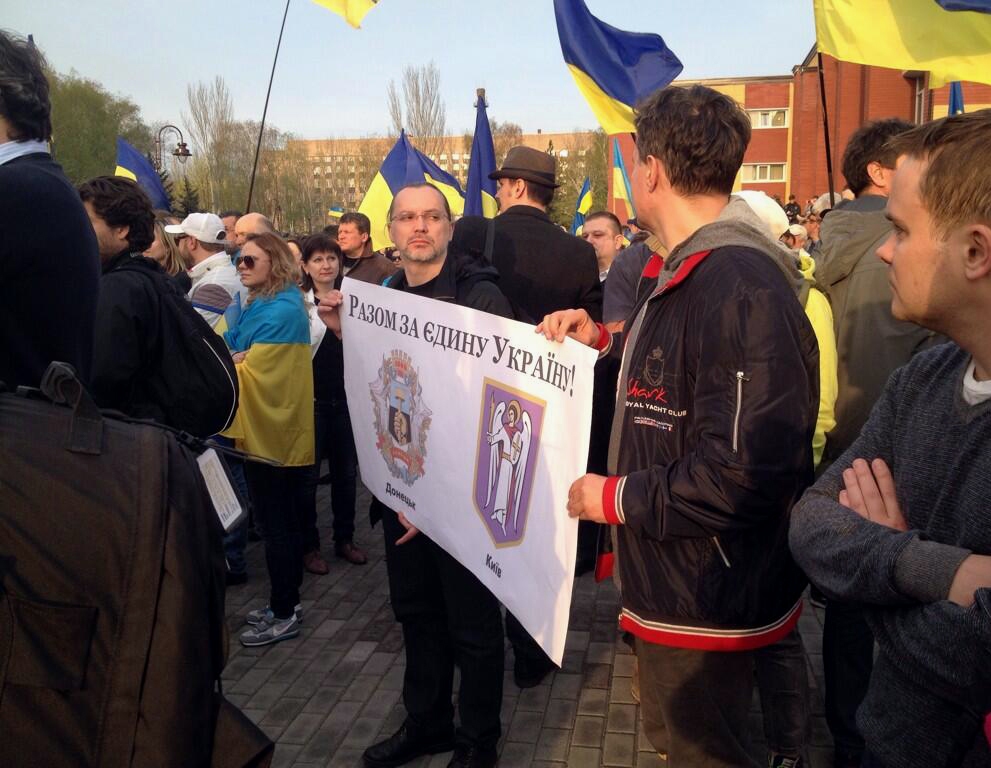
Few people know that protests against separatism took place in Donetsk just after the self-proclaimed “DNR” had formed in April 2014. Demonstrations were mainly held by patriotic students and professors of Donetsk National University. “More than 30 of them went through captivity and cellars afterward,” recalls the Vice-Rector of the university, Tetiana Nahorniak.
However, that didn't deter other students and university staff from going to Kyiv with the “Save Alma Mater!” campaign. Having started as a social network flash mob, the action culminated in front of Ukrainian Cabinet and The Ministry of Education and Science. Protesters called on the authorities to evacuate the university from the war zone. A few days later, that request was satisfied: the college started moving to Vinnytsia, a city in central Ukraine.
The Coordinating Center of Displaced Universities
reports that, because of the war and subsequent evacuation, Donetsk National University lost almost 10 000 students and 500 professors. Some of them changed the places of study or work, others were not able to move for the material, family or health reasons, others chose the self-proclaimed republic to stay in. Despite this, the Donetsk National University managed to become the second best college in central Ukraine in 2016 and has the ambition to be the first.
For Olena Taranenko, the decision to follow the college to Vinnytsa was not difficult to make. She used to work at the Journalism Department of Donetsk university and write op-ed articles for local and All-Ukrainian press. The latter resulted in persecutions and threats. Finally, Olena was forced to leave the city for safety reasons in July 2014.
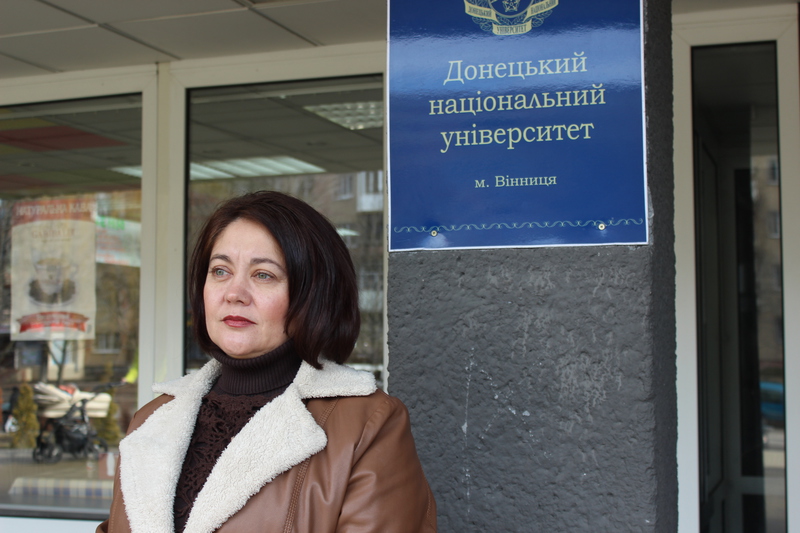
“I do not want to talk about it, but in short, it was a complaint made by my neighbors. They informed “DNR” that I did not support it. After the raid and the arrest of the people close to me, I moved with my family to Zaporizhzhia (a city in southeast Ukraine - K.Y.) That is why I was indeed glad when I heard about the relocation of our university. For me it was a chance to return to work,” Olena says.
Olena first came to Vinnytsia in October 2014. The educational process was not set then, but both students and professors had a lot to do for the university. They voluntarily cleaned classrooms, organized fundraising and began developing a computer software to be able to hold classes remotely. Overall, it took six months for Donetsk University to establish itself in Vinnytsa. In addition to logistical problems, many IDPs faced prejudice from local residents.
“For me, the hardest part was getting refusals to rent an apartment under the pretext that I was a refugee from Donbas. My colleagues and I were subjected to public pressure for a year. We often heard from locals: 'You are all separatists in Donetsk, all without exception',” Olena complains.
To help with the integration process, Olena appealed for the assistance of local NGOs. In cooperation with the Aksis Information and Educational Centre, she and her friends published a collection of documentary essays called “Stories of NON-Separatists.” These autobiographical narratives aimed to show by examples that being from Donetsk does not equate to being separatist. The book awakened a massive public outcry, which is reflected in the media reviews.
Olena believes it was the war that united Donetsk National University and made it more open.
“We now participate in more exchange programs than ever before; our studying methods became more innovative, and, what is the biggest advantage, we gained the trust of applicants from Central Ukraine at last. That means not only the university has changed due to the relocation. Now we change people around us too,” she says.
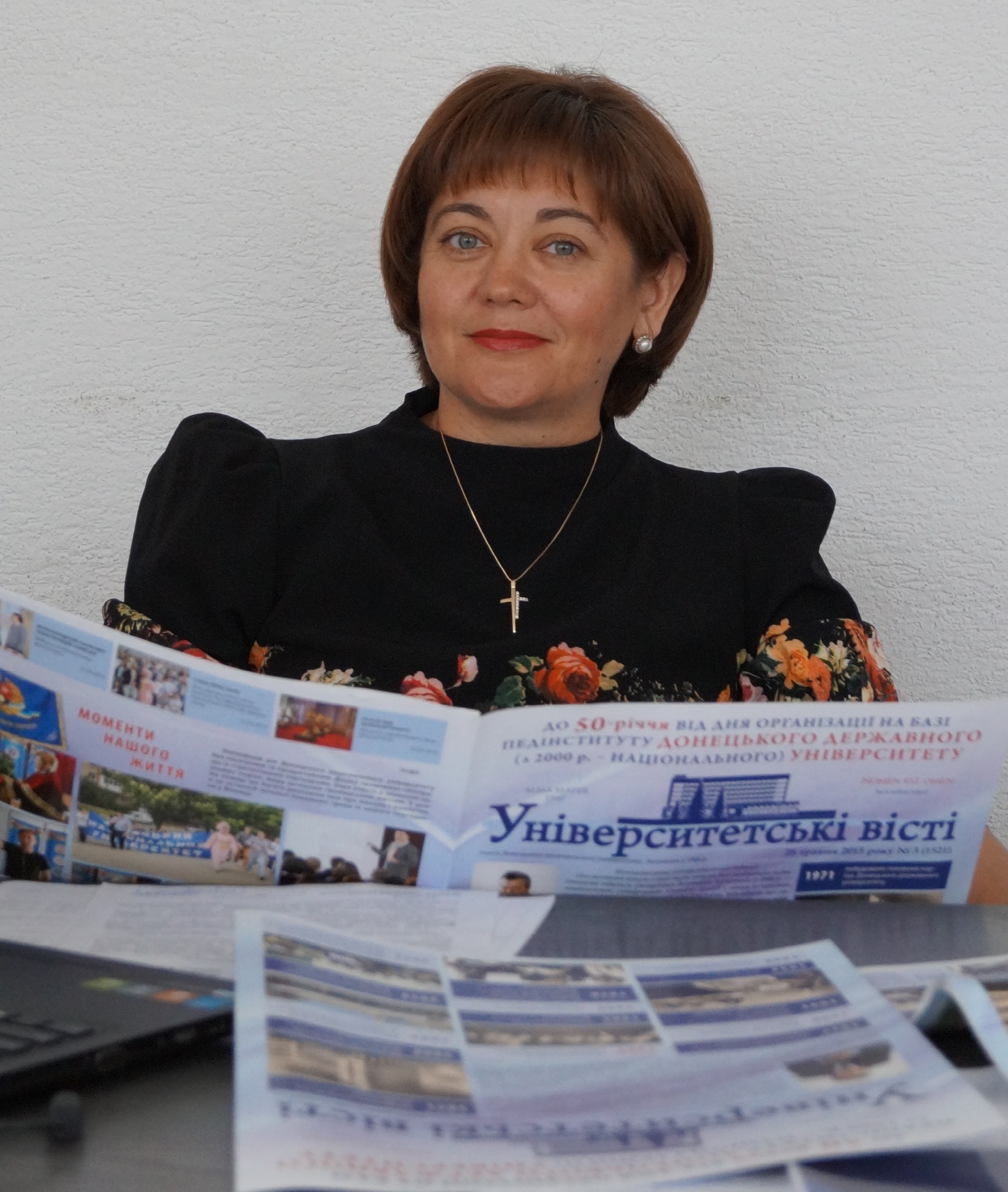
In June 2016, Donetsk National University was renamed to honor the Ukrainian poet and human rights activist Vasyl Stus, who was repressed by Soviet authorities for political reasons and died in a cell after a long imprisonment. Stus lived and worked in Donetsk for most of his life. Today, he is a symbol of the Ukrainian Donbas. A lively public debate in regards to this renaming lasted for 8 years. As usual, the MPs from the pro-Russian parties blocked the initiative.
Eventually, the decision to name the Donetsk National University after Vasyl Stus was taken collectively by the college staff: out of the 105 votes, 75 were in favor, and 14 against, and the rest abstained from voting. Students say this would not have happened in Donetsk in the near future.
Taras Shevchenko National University of Luhansk: studying 70 kilometers from the frontline
Members of the press center of Taras Shevchenko National University of Luhansk (LNU) are very careful when it comes to communicating with media. It is not safe to transfer personal contacts of students to unknown journalists when you are so close to the active frontline.
It was even more dangerous, however, to stay in Luhansk when the armed masked men began to seize administrative buildings of the city in summer 2014.
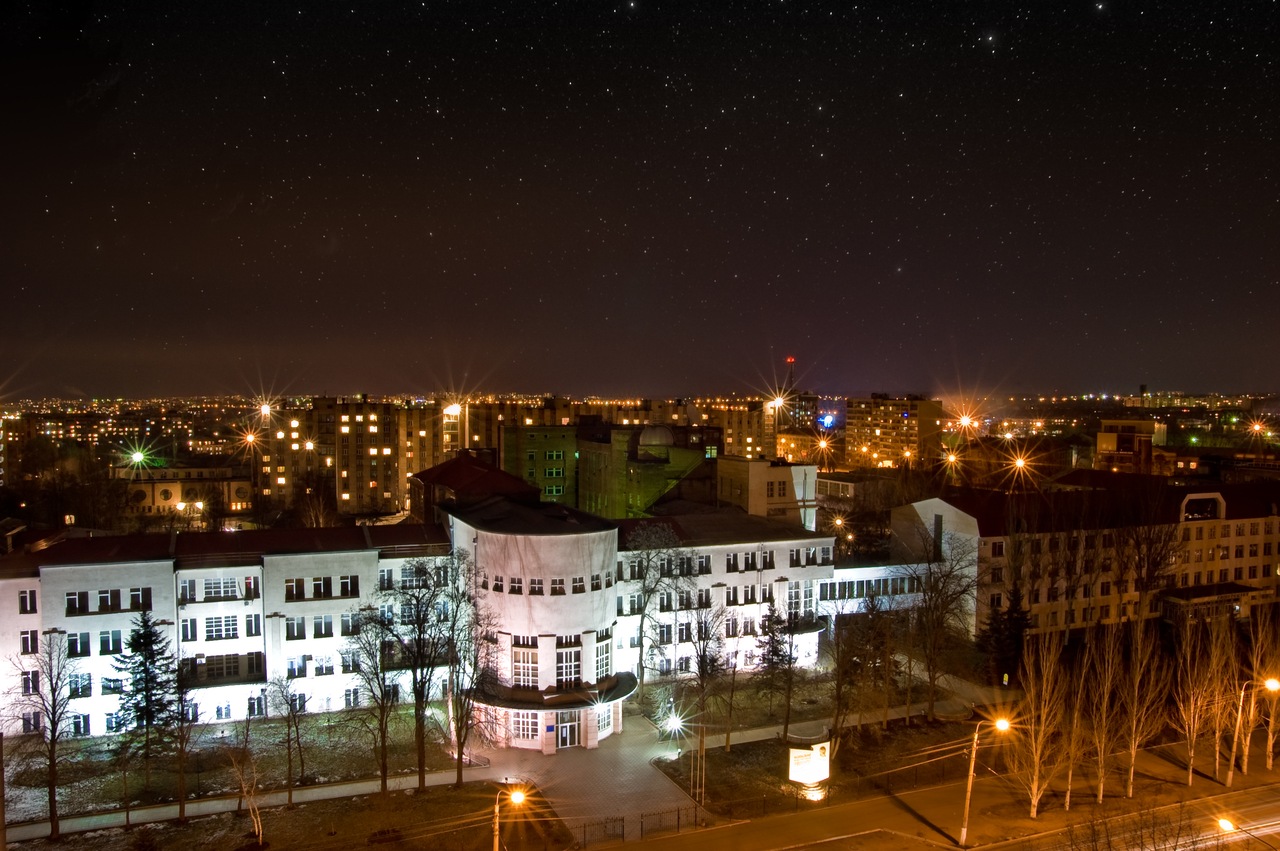
“From June to July there were ten direct hits on the university building: not bullets, but basically mines and shells,” says the Rector of the university Serhiy Savchenko.
“Once, separatists even captured our dorm explaining that its roof suited perfectly for snipers’ position. It was high time to get out of Luhansk, so we moved to Starobelsk city, where one of the university`s campus was located”, recalls the Head of the Department of Political Science and Law Valeriy Arhipov.
It was not always easy to leave Luhansk. Male students of conscription age were detained at the checkpoints; separatists wanted them to join their militias.
Nevertheless, the evacuation was still successful. LNU became the first displaced university to receive salaries in the 2014-15 academic year; its digital database for online education is one of the best in Ukraine now with more than 15 000 courses.
Oleksiy Shalnev is a fifth-year student of LNU. He studies Practical Psychology and works at three different jobs, all connected with his major. Oleksiy is sure he would have never been so productive if it was not for the university’s relocation.
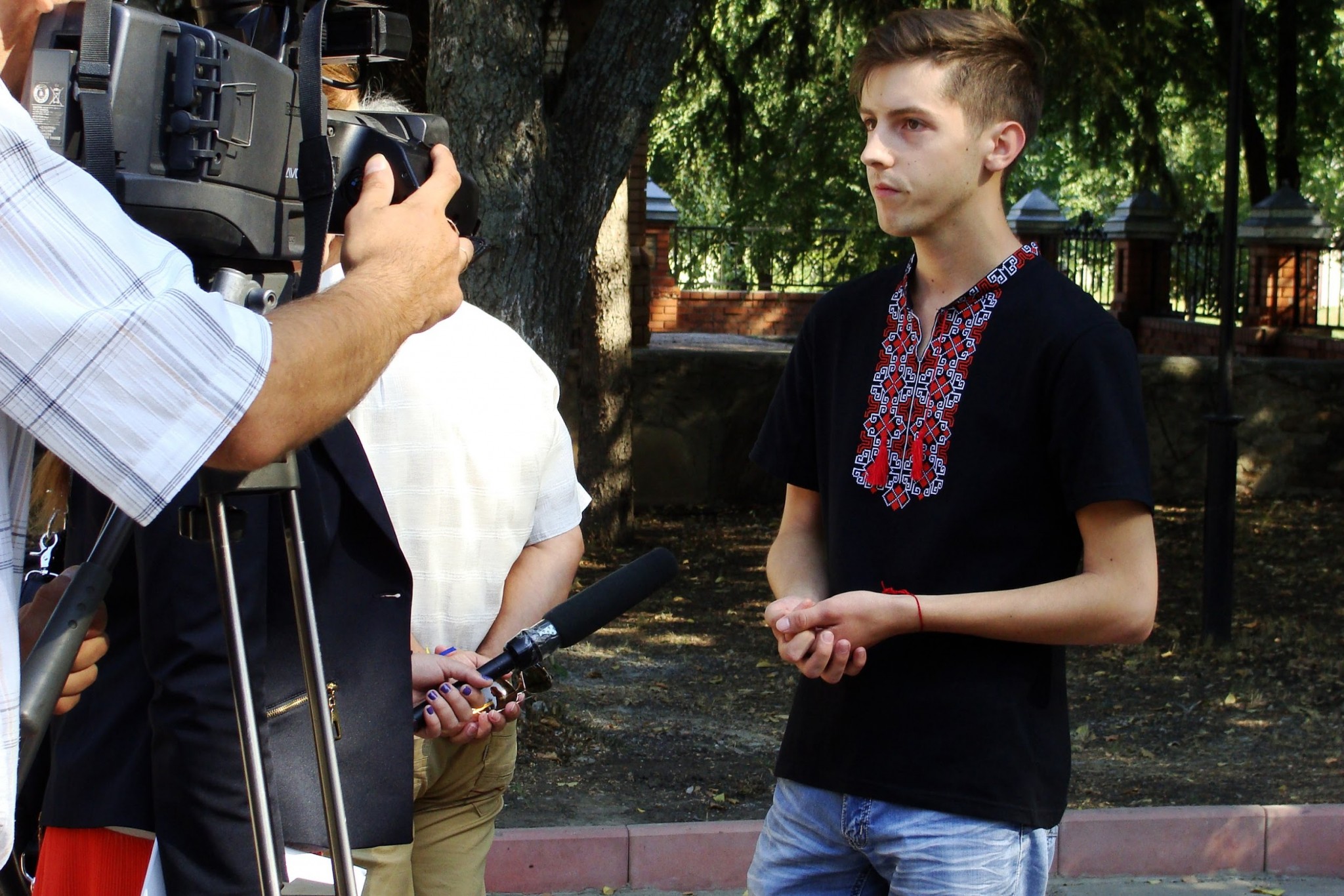
Photo: press-centre of LNU. Oleksiy Shalnev, as a displaced student, is giving an interview to a telivision channel
“I believed to the end that Luhansk would be released by the Ukrainian army. But then the retreat began. I nearly fell into the clutches of separatists during the next escalation, so I decided to move to Starobelsk. Of course, my peers and I have lost our adolescence due to this war, but we have found a lot here and I do not regret it,” he says.
5 of 29 students who used to study in the same group with Oleksiy stayed in self-proclaimed “LNR.” Oleksiy talked to them only once, when he had to collect papers from the former building of LNU. Now in that building there is another Luhansk university with its own curriculum, website, and professors. According to Oleksiy, some of those “professors” do not even have a diploma of higher education, but students do not care, as they stayed not for educational, but political reasons.
The problem of coexistence of two eponymous colleges - one on the territory controlled by Kyiv and another one on the occupied area - is not unique for LNU. Almost each Ukrainian university, displaced from Donetsk or Luhansk regions, has its illegal twin pretending to be the real one. The fake universities use property and all other resources stolen from Ukraine, award diplomas which are sometimes not even recognized in Russia. They often call themselves “National”, but the question is, what nation do they refer to?
This situation looked especially confusing for the international students who had been studying in Donbas before the war began. Some of them were sent home through the embassies, but, according to Oleksiy, others continued to study on the territory of military action. The situation is also complicated by the fact that Ukraine has no official data about the functioning of illegal universities in “DNR” and “LNR”.
“Last time they (illegal universities - K.Y.) started creating websites in Ukrainian language and even on Ukrainian domains. They hope that lie will help them to attract applicants. In regard to this, our organization has signed a letter to the police, prosecutor's office and the Security Service of Ukraine. We look forward to their response”, says the Director of the Coordinating Center of Displaced Universities Alex Kulga.
The Ministry of Education of Ukraine revoked the license of all colleges located in the occupied territories of the Crimea and Donbas on 1 February 2017.
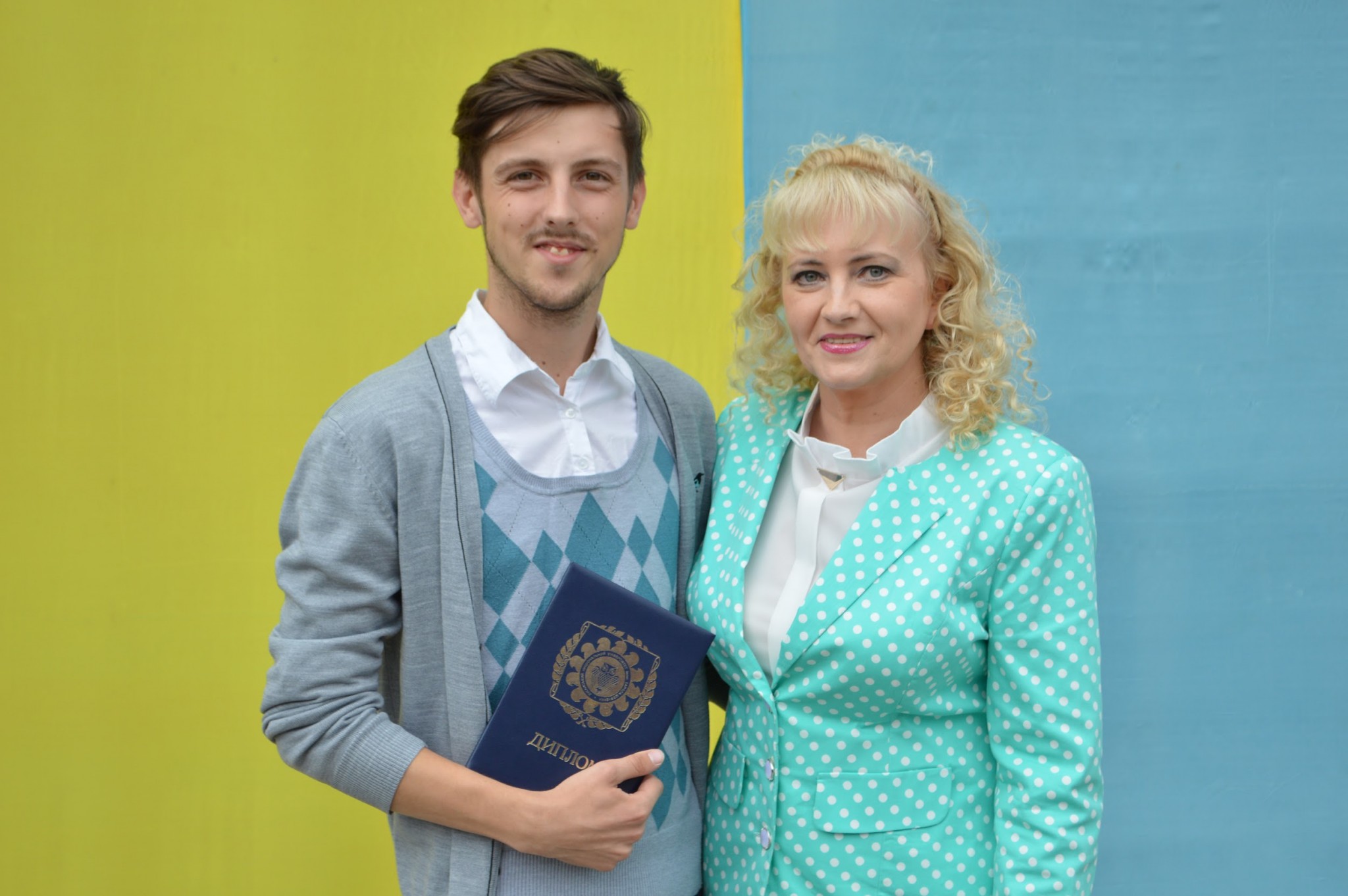
Despite having been near the frontline, Oleksiy does not follow the war news. “I have some of my relatives there and I feel anxious anyway. If I followed the war news constantly I could not live here at all. This lack of knowledge just helps me to maintain a normal psychological state”, Oleksiy admits.
This is not the first evacuation LNU has undergone. The first one took place during the Nazi occupation of Luhansk in 1942. As it was then, students of the university look forward to returning back home. Oleksiy claims, most of them realize that Luhansk, as it used to be, no longer exists.
One-of-a-kind: Volodymyr Vernadskyi National University of Tavria
Taurian National University is the only college evacuated from Crimea following the occupation. It is also the single displaced university which moved to Ukraine’s capital. Founded as a branch of Kyiv University of St. Volodymyr in 1918, it returned to the mainland and reopened in September 2016.
The initiator of this move was the former Vice-Rector of Taurian University Volodymyr Kazarin. He studied Russian language and literature and worked as an official in the Autonomous Republic of Crimea before 2014. Interestingly, his relationship with Russian culture did not prevent him from condemning the Kremlin its annexation of Crimea.
For comparison, the former Rector of the Taurian University Mykola Bagrov (1937 - 2015) was among the main supporters of Russia`s invasion of Crimea. This is despite the fact that Mr. Bagrov was a Honored Worker of Education of Ukraine since 1997, an Academician of the National Academy of Sciences of Ukraine since 1999, a Hero of Ukraine since 2007 and many more.
Today Volodymyr Karazin is the Head of the Taurian National University of Volodymyr Vernadskiy in Kyiv. He agreed to answer a few questions for Euromaidan Press.
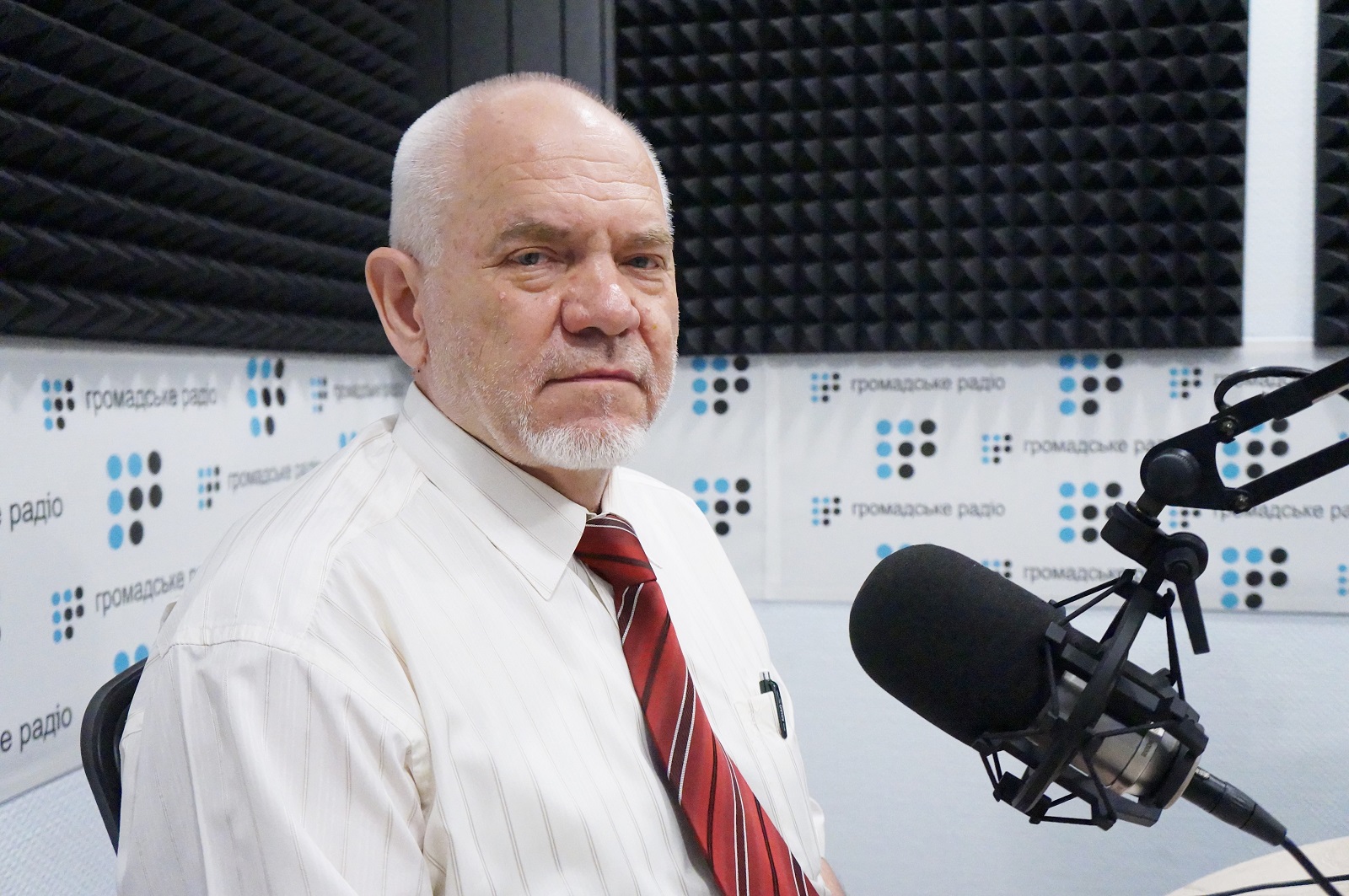
Mr. Kazarin, unlike other displaced universities, the Taurian National University resumed its work only in September 2016. Why did it happen so?
After the annexation of Crimea, we were given a six-month transition period to finish all Ukrainian projects. During this time we released 4 PhDs and 12 PhD candidates; most of them have gone to work in Ukraine.
After the end of this term, all Crimean universities were declared non-existent by the Russian government. Since then it took us one and half year to move to Kyiv and begin accepting students again. Due to the occupation of the peninsula, the University lost all its facilities and logistic base worth approximately $ 75 - 100 mn.
Currently, we enroll applicants on a rolling basis and expect to accept 3 000 of them by July. We also negotiate with Ukrainian authorities concerning the possibility to evacuate two other Crimean universities - Сrimean Medical and Crimean Agrarian Universities.
Is it true that Taurian National University accepts applicants with Russian documents?
Yes. Fortunately, our government abolished any barriers for young people who want to study in Ukraine. We must understand that children and adolescents are not to blame for the loss of the Crimea. As juveniles, they сould not vote on pseudoreferendum, and now they are not asked if they wish to have Russian passport in Crimea or not. So, it is our duty to provide them with unimpeded return to their homeland.
You are a member of Council of Displaced Universities Rectors. How do you assess the cooperation of the Council with the State?
Our cooperation is quite effective. The important laws were signed over the past year. For example, the displaced universities got a reprieve in the context of the annual accreditation. Otherwise, it would have been very difficult to pass it in isolation from our logistical base.
We also have benefits in terms of our privacy policy. Particularly, our universities are under no obligation to publish admission ratings with the names of the applicants. For safety reasons, we place on the Internet only candidates' ciphers.
On the other hand, some of the laws regarding displaced universities were adopted by the Ukrainian Parliament a long time ago, but they are not executed yet. This situation must be changed.

